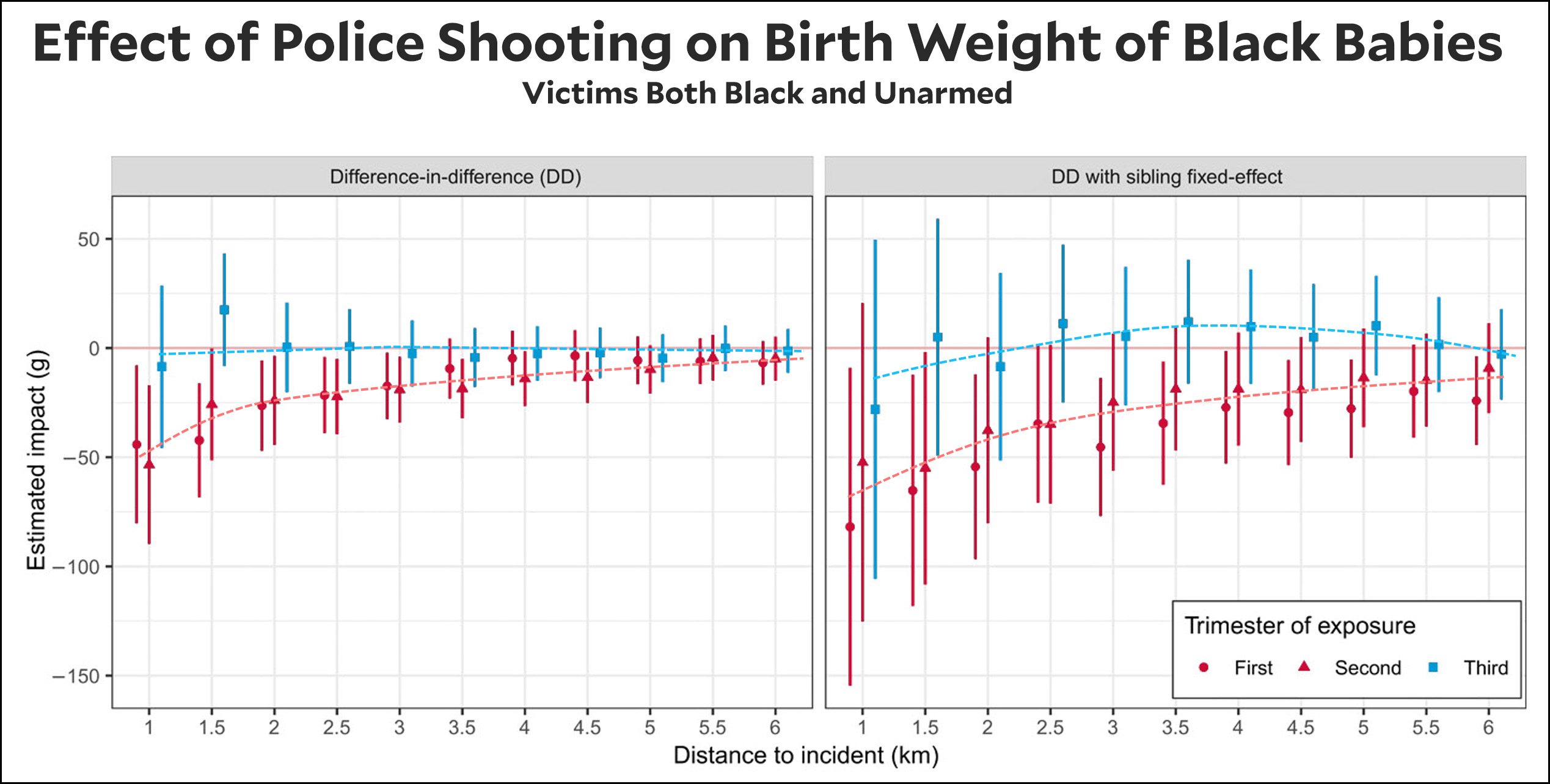NOTE: THIS STUDY HAS BEEN RETRACTED. Click here for more details
Today is turning out to be chart day. Here’s a pretty fascinating study by Harvard’s Joscha Legewie of 3.9 million births in California. The question is: do nearby police shootings have any effect on the birthweight of babies born nine months later? The answer turns out to be yes, but only for black babies and only if the victim is an unarmed black man:

As usual, I have added both color and rough trendlines to make the chart more readable. There are two things to see here about the birthweight effect. First, the more nearby the shooting, the bigger the effect. Second, the effect is seen only in shootings that happen during the first and second trimesters. Shootings during the third trimester don’t have any impact. This is not too surprising since the obvious mechanism for all this is increased stress in the mother, and stress is known to have stronger effects early in pregnancies.
Neither whites nor Hispanics show any effect at all. And oddly, although African-American babies react negatively to police shootings of black men, they actually react positively to police shootings of non-blacks. The most obvious conclusion from these results is (a) black mothers are especially sensitive to nearby police shootings, and (b) if it turns out that a non-black man was shot, it provokes a sense of relief that is sometimes good for the pregnancy.
The birthweight effect of police shootings ranges from about 50 grams to 25 grams, which is 1-2 ounces. That may not seem like much, but it’s a fair chunk of the average difference in infant bodyweight that’s long been observed between black and white mothers. Here is Legewie:
Exposure to a single police killing of an unarmed black individual during pregnancy accounts for as much as a third of the black-white gap in birth weight. This finding indicates that police violence is an environmental stressor that contributes to the stark and enduring black-white disparities in infant health and therefore the intergenerational transmission of disadvantage at the earliest stages of life. Birth weight and gestational age are not only related to infant death in the short term; the consequences are long term with implications for cognitive development, test scores, ADHD, and others.
….The study also has important research implications….By estimating the effect of police killings on birth outcomes, this study highlights how the criminal justice system can adversely affect disparities in health. Linking vital records with incident-level event data showcases an innovative approach to study the health consequences of acute environmental stressors. This approach encourages future studies based on vital records, medical claims data, or other administrative health records to examine the impacts of an array of events on population health including the persisting black-white disparities in infant health.
More research, please!


















